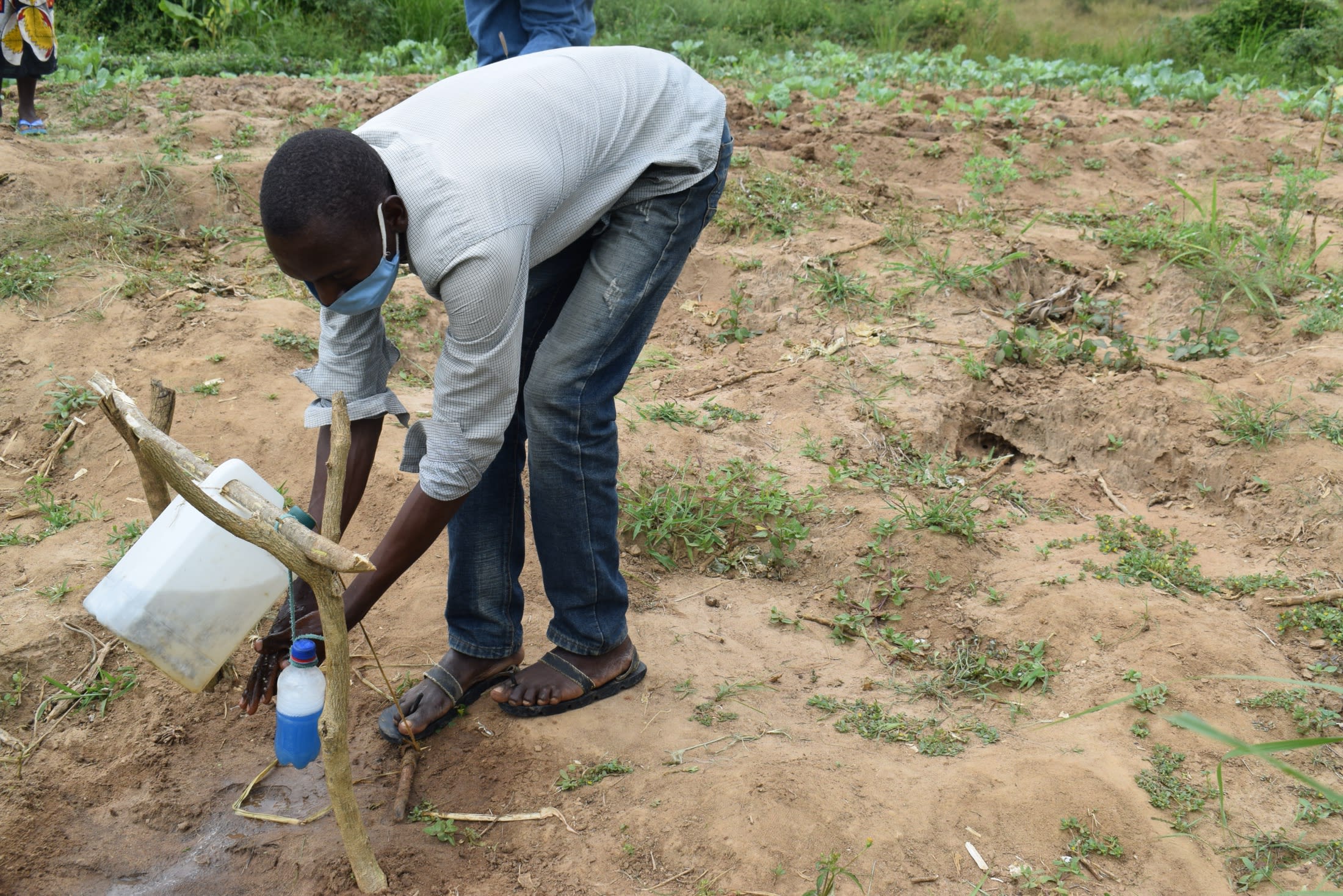This project is a part of our shared program with Africa Sand Dam Foundation. Our team is pleased to directly share the below report (edited for clarity, as needed).
Welcome to the Community
Kianguni Self-Help Group is made up of several community members living in Katung'uli Community. They aim to work together to seek financial stability. Members of the Kianguni Self-Help Group heard about us from members of Itatini, Kwa Kitilo and Wendo wa Mwau Self-Help Groups. Ever since they heard about the sand dam projects we've been doing with those groups, they have been volunteering at different times to help with construction. They approached our field officer with a request for support, and after verifying that they had the relevant registration documents, they were put on the mandatory 6-month probation period. After that we went back to verify their water challenges and their need for support through baseline activities. The evidence to warrant support was sufficient, and the group was taken on board.
68% of the members reported that they rely on casual labor as their main source of income, which involves doing odd jobs on other people’s businesses or farms. An interesting find is that this is regardless of their level of education; from the interviews, we found out that those involved in casual labor are the most literate. Only 14% of the respondents report that farming is their main source of income. These are the people who have planted crops on their farms, which are fully grown. However, their income is seasonal and therefore not reliable. The other 18% rely on other activities like small businesses and remittances from relatives as their sources of income. Those relying on casual labor make 3,000 to 10,000 shillings while the 9% who depend on farming earn an average income below 3,000. This is because the rain pattern of the area is erratic, leading to poor yields or no yields at all.
Water Situation
Water in most parts of Makueni is collected from open scoop holes in sandy, seasonal rivers using 20-liter plastic jerrycans. These are then loaded onto donkeys or ox-drawn carts. If a household is too poor to afford either of those, then the last resort is to carry it home on their backs. However, most households will have at least one donkey. Of late, households that can afford it use motorbikes to carry water home.
For members of Kianguni, the longest distance covered to a water source is four kilometers, which takes over two hours. The respondents who cover this distance make up 59% of the total respondents! 27% of the members walk for about three kilometers, taking 1-2 hours to get to the water point. The rest take 30 minutes to an hour, with only 5% within an acceptable distance of one kilometer.
The scoop holes at the river are entirely open to different sources of contamination. They are especially dirty after it rains, when rainwater washes farming chemicals, feces, and dirt into the water.
After drinking this water, rampant waterborne diseases and resultant treatment costs become the norm. Common diseases include amoeba, typhoid, bilharzia and ringworm. Long hours have been wasted walking to and lining up at water points. All these have economic implications in the sense that treatment costs divert substantial family income and the time lost on one activity alone could have been used in other income-generating activities.
Sanitation Situation
Over 75% of households have at least a basic pit latrine. Those we visited are beginning to wear down, and lack doors with just curtains hanging in the openings. Out of 39 households, only four report to have a dedicated place to wash their hands.
36% of households have a proper garbage pit to keep litter away from wild animals, while the rest pile their garbage in open places.
Plans: Hygiene and Sanitation Training
Since this is our first hygiene and sanitation training in Katung'uli, training will be held for three days. The members will learn about useful practices and tools to improve health, and will be encouraged to share those with their families and neighbors. Water transport, storage, and treatment methods will be taught, and hand-washing will be a focus. Group members will learn how to make their own hand-washing stations with everyday materials. To motivate participants, we must show the links between these activities and their people’s health.
Plans: Hand-Dug Well
This particular hand-dug well is being built adjacent to this group’s first sand dam project (click here to see), which will supply clean drinking water once it rains. We have supplied the group with the tools needed for excavation. With the guidance of our artisans and mechanics, the excavated well will be cased, sealed with a well pad, and then finished with a new AfriDev pump.
Excavation takes a month or more on average, depending on the nature of the rock beneath. Construction of the well lining and installation of the pump takes 12 days maximum. The well will be lined with a concrete wall including perforations so that once it rains, water will filter in from the sand dam.
This well will be located in Katung'uli Village, and will bring clean water closer to families having to walk long distances for their water.

 Protected Dug Well
Protected Dug Well
 Rehabilitation Project
Rehabilitation Project






























